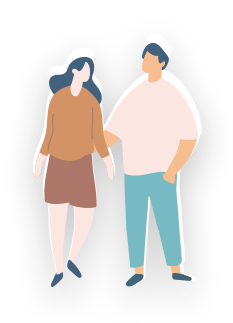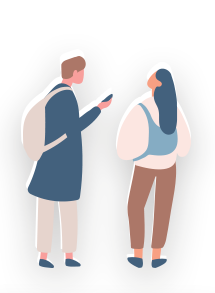
Trigger warning
- Say:
"This lesson covers topics that can sometimes be difficult for people. If you feel uncomfortable, you may like to take a break from the room.
Before we start, let's check that everyone knows where to go for help if you want to check anything that this lesson raises for you."
- Ask students:
Who are some trusted adults you can talk to?
(Possible answers: parents, grandparents, teacher, older siblings, doctor, other family members, etc)
Teaching tip: It is important not to tell students who their trusted adults are or should be. You can offer a list of suggestions of who they might be. For some students, some of the people you suggest, may not be people that are safe for them to talk to. Students should not be made to share their list of trusted adults publicly unless they wish to do so.
Who are some people at this school that you can talk to?
(Possible answers: class teacher, other teachers, school psychologist, community health nurse, youth workers, etc )
What services and online support is available?
(Possible answers: Sexual Assault Resource Centre (SARC), Kidshelpline, Headspace, GPs, Sexual Health Quarters, Beyond Blue, Lifeline, 1800 Respect)





